Artonix.AI
Manage your days/tasks anywhere you like using AI.
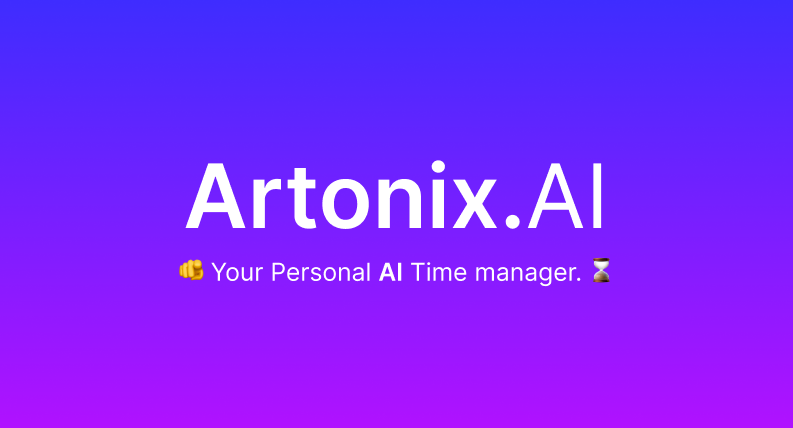
Artonix.AI
A platform-independent AI assistant that manages calendars and tasks through chat-based interactions. This project was created to offer users a natural and effortless way to organize their schedules without being tied to specific apps or ecosystems.
The goal:
Create a simple and natural AI assistant for scheduling and task management, designed specifically for people who find traditional calendars and to-do apps tedious and difficult to maintain.
My role:
Product managment, Ux, UI design, (AI) development/ research.
Involves:
Node.js, Heroku, Supabase, Twilio, OpenAI API, Google Calendar API, Prototyping
The Story of Artonix.AI
Everyone knows that managing your schedule can often feel like a chore. Traditional calendar apps and task managers, filled with countless buttons and complex features, quickly become overwhelming. I noticed that many people around me would enthusiastically start using these apps, only to abandon them after a short while because maintaining them was simply too tedious.
Interestingly, despite their struggles, these same people consistently turned to messaging apps or notes for quick reminders and spontaneous planning. This insight sparked an idea: What if planning could be as easy and natural as chatting with a friend or a personal assistant?

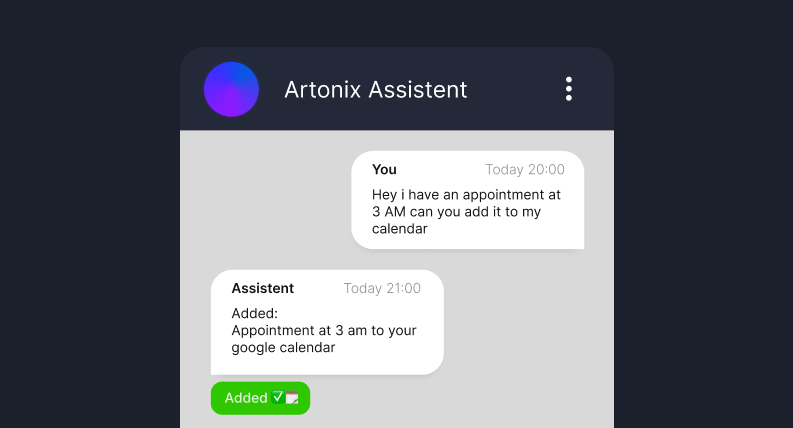
Understanding the Problem
When diving deeper into the habits of users, a clear pattern emerged: Complexity and Frustration: Traditional scheduling apps often demand too many steps, making users reluctant to use them consistently. Lack of Motivation: Users feel that keeping calendars and tasks updated manually is an annoying, repetitive task. Forgetfulness: Without consistent use, people quickly forget important tasks or events, creating stress and disorganization. Clearly, there was a need for something more intuitive and less burdensome.
A Human-Like Solution
To tackle this problem, I created the AI WhatsApp Planner & Task Agent, an assistant leveraging natural language processing within a familiar environment—WhatsApp. Using intuitive conversational interactions, users could effortlessly manage their schedules, set reminders, and add tasks just by chatting naturally, much like messaging a personal assistant.
Simple Interactions:
Easily manage your day through natural, conversational messages.Proactive Reminders:
The AI proactively texts reminders, keeping users organized.Future-proof Integration:
Initially built for WhatsApp with the possibility to expand to other messaging platforms.Feels Human:
The assistant communicates naturally, closely resembling interactions with an actual human assistant.
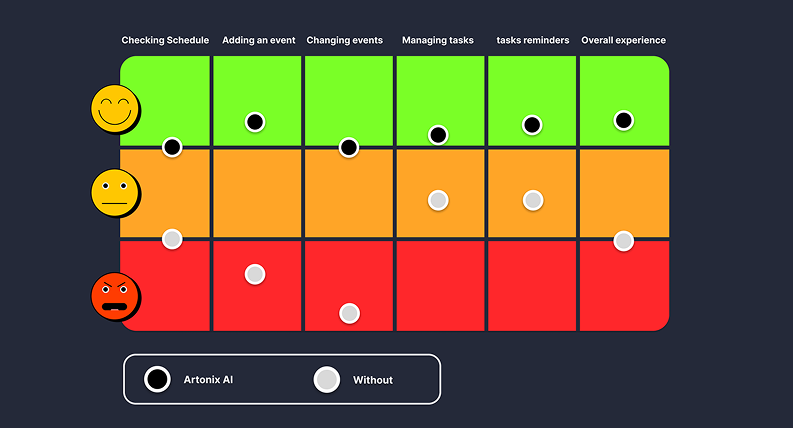
Development Journey
1. Concept & Research
I started by understanding why users struggle with traditional planning apps. Insights showed a preference for simple note-taking and messaging platforms, guiding the conversational AI approach.
2. Building the MVP
The initial version integrated WhatsApp via Twilio, supported by Google Calendar and Supabase for storage. The MVP demonstrated immediate value, allowing users to effortlessly schedule events and tasks by simply texting the assistant, e.g.,Schedule a call tomorrow at 3 PM.
3. Vision & Potential Expansions
Although the MVP focused on WhatsApp and specific integrations, the vision included future compatibility with other messaging platforms (Telegram, Slack) and task management tools (Microsoft To Do, Notion). Additionally, the architecture was designed to allow easy switching between different AI models, for this reason LangChain was used.
4. Evaluation & Insights
The project demonstrated how effectively an AI could simplify scheduling and task management. However, similar functionalities became more common due to rapid developments in conversational AI (e.g., GPT integrations), ultimately reducing the product's unique edge.
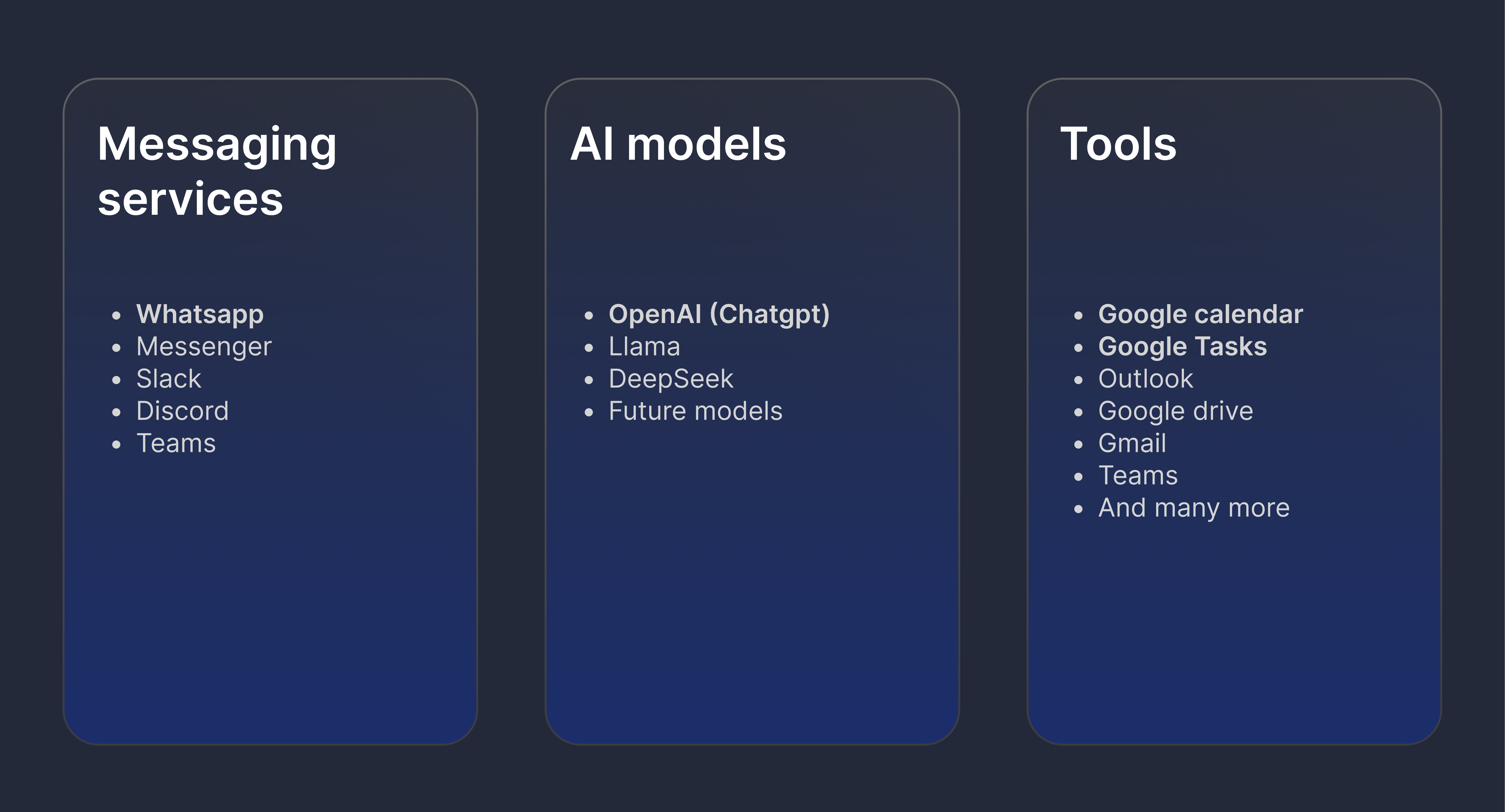
Key Results & Lessons Learned
User-Centric Focus:
Deeply understood and designed solutions tailored to real user frustrations.Conversational UX:
Developed and refined engaging, natural conversational interactions.Technical Integration:
Gained extensive experience with API integration and practical AI deployment.Adaptive Thinking:
Planned a flexible system architecture capable of future expansions.
Let's talk.
My work
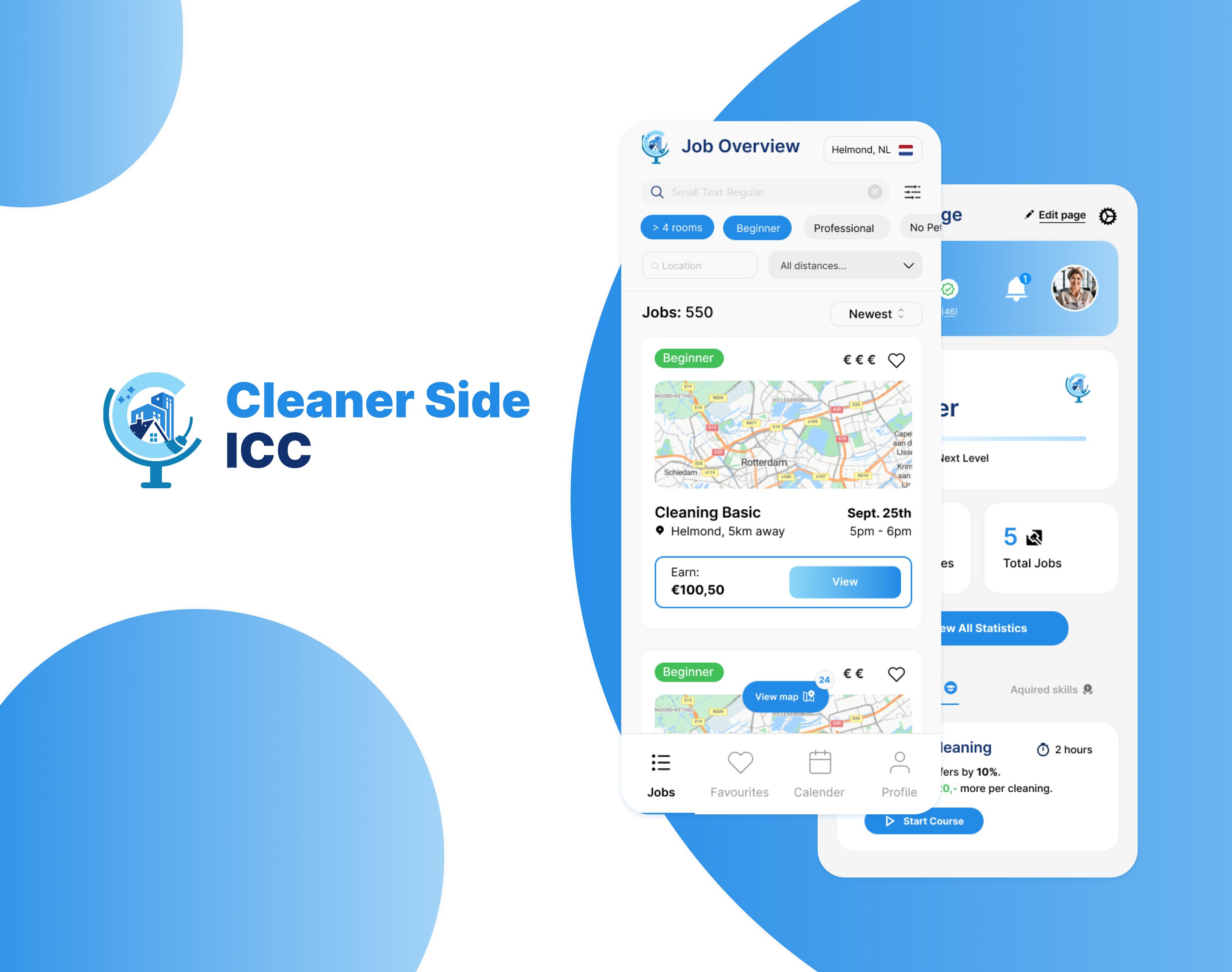
ICC Cleaner side
ICC Cleaner Side is a user-centric platform that connects freelance cleaners with job opportunities. Designed for accessibility, the platform simplifies job matching, scheduling, and trust verification while ensuring a seamless experience for both cleaners and clients. The project focused on UX research, intuitive UI design, and an efficient onboarding process, later handed off to a development team for implementation.
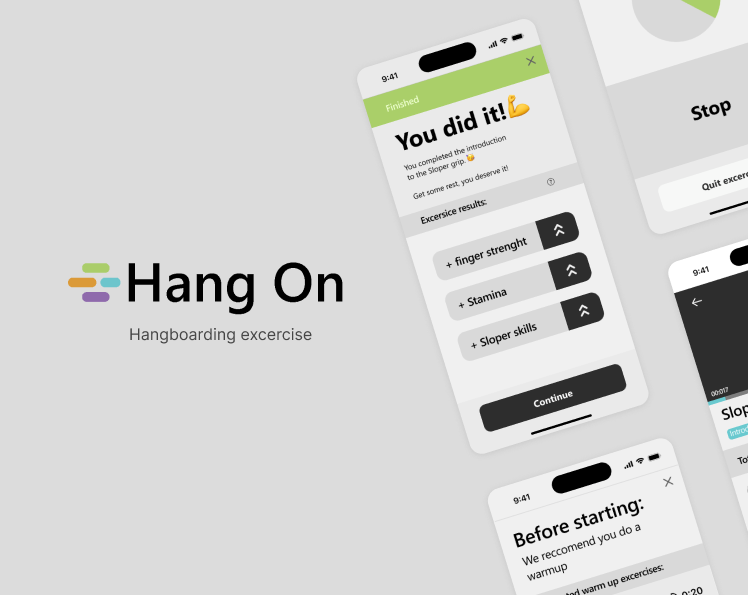
Hang On
Hang on was a team project withing Fontys. We had to produce an application that would improve the hang boarding experience for boulderers. Hangboarding can help with finger/grip strength improvement. This is an especially important part of bouldering/climbing.
